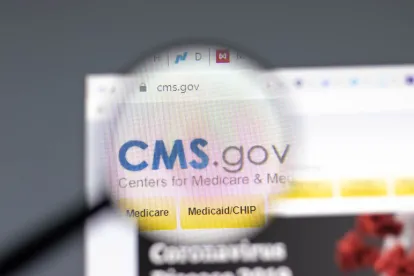While you were at a Memorial Day barbeque, the Centers for Medicare & Medicaid Services (“CMS”) proposed major changes to the Medicaid Drug Rebate Program (“MDRP”). 2023-10934.pdf (federalregister.gov). Comments on the proposed rules are due July 25 but we recommend that you start working now.
The proposed rules are 187 pages and address drug misclassification and drug pricing and product data misreporting by pharmaceutical manufacturers. Also important for manufacturers, the rules propose program integrity and program administration changes, including limiting the time within which a manufacturer can initiate an audit of a State Medicaid Program’s drug utilization for purposes of Medicaid rebate obligations; clarifying requirements to accumulate or “stack” price concessions when a manufacturer determines best price; and providing for drug price verification and transparency through data collection.
Increased Transparency of Prescription Drug Costs
CMS is proposing to verify certain drug prices reported by manufacturers through an annual Medicaid Drug Price Verification Survey. According to CMS, verifying drug prices and publishing non-proprietary information about drug prices will increase public transparency for high-cost drugs allowing state Medicaid agencies to negotiate covered outpatient drug (“COD”) prices more effectively with manufacturers. This sounds eerily similar to the purposes behind a multitude of State drug pricing transparency programs.
Only a select number of manufacturers of single-source CODs would be surveyed. CMS would develop a list of high-priced CODs which it estimates would be approximately 160 drug products or 200 national drug codes (“NDCs”). It would then narrow the list to between three and 10 NDCs by excluding CODs for which a manufacturer participates in certain CMS drug pricing programs or pays a significant amount in supplemental rebates to at least 50 percent of states. The manufacturers of the three to 10 NDCs selected would receive a Medicaid Drug Price Verification Survey. After receiving and reviewing survey responses, CMS intends to publish the non-proprietary elements of the survey publicly on Medicaid.gov. The verification survey process would NOT be used for coverage determinations or to limit access for beneficiaries of medically necessary CODs.
Increased Transparency in Drug Classifications
The proposed rules also seek to address situations in which manufacturers incorrectly report or misclassify their drugs in the MDRP. Misclassifying a brand-name drug as a generic drug reduces a manufacturer’s Medicaid rebate payments. CMS intends to define the situations in which it would consider a drug misclassified for the purposes of the MDRP, as well as other situations in which a manufacturer is paying rebates to states that are different from the rebates that are supported by the drug data being reported. CMS also would develop a process and timeline to notify manufacturers that it has determined that a misclassification of a COD has occurred, and the process for correcting the misclassification.
The proposed rules would codify a manufacturer’s obligation to pay unpaid rebate amounts to states due to the misclassification(s) and describe actions CMS may take if a manufacturer fails to correct a misclassification, including CMS correcting the misclassification, suspension of the drug and/or its manufacturer from the MDRP, exclusion of the misclassified drug from being eligible for Medicaid reimbursement, and potential civil monetary penalties.
Pharmaceutical manufacturers should begin considering whether to comment on CMS’ proposed rules. The government’s increased price reporting requirements, proposed here and under the Inflation Reduction Act, are wholly inconsistent with its demands for lower drug prices. Moreover, even a cursory review of the numerous state drug price transparency reporting obligations reveals that the programs have not done anything to lower drug prices. Regardless, manufacturers should take steps now to mitigate potential Medicaid compliance issues. Manufacturers should review how their drugs are classified for purposes of paying Medicaid rebates and document the rationales for such classifications. Further, manufacturers should assess whether any of their drugs are considered a high-cost COD and, if so, review the information CMS will require to be submitted in response to a Drug Price Verification Survey.



 />i
/>i

